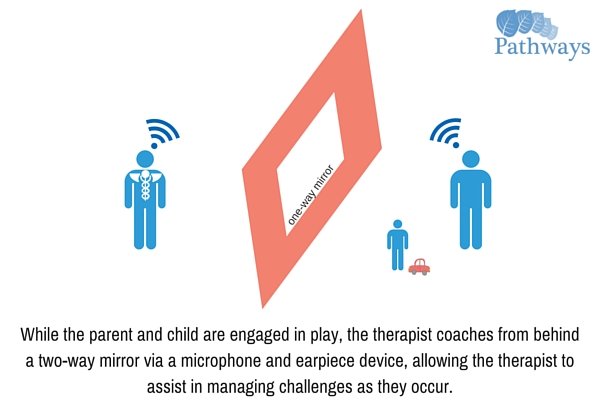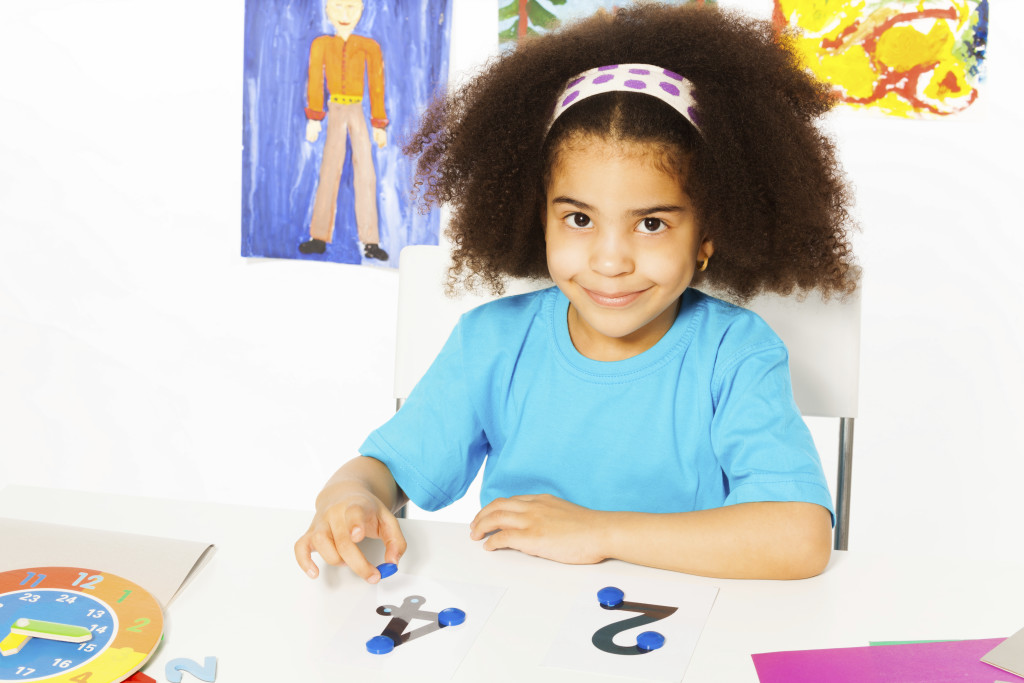Pathways Real Life Recovery offers parent child interactional therapy, and our Utah therapists will create a custom treatment plan built around each child's individual needs. To take advantage of a free screening opportunity, contact us at 801-895-3006 to learn more.
What is Parent Child Interaction Therapy?
 Parent-Child Interaction Therapy (PCIT) is an empirically-supported form of treatment that is designed as an intervening method of correcting behavior and improving the parent-child relationship. This method of treatment is designed for young children and their caregivers, whether parents or otherwise, and focuses primarily on a live-coaching model in which parents are directly involved in the therapy sessions. During parent child interaction therapy sessions, a therapist will typically only act as an observer who is shielded from the child's view, but will sometimes encourage questions and reactions by remotely coaching the parent through a hidden listening device. Because parent child interaction therapy takes place usually between the ages of two and eight when rapid psychological development is occurring, developmental differences are treated as a baseline of determining appropriate therapy activities between the parent and the child.
Parent-Child Interaction Therapy (PCIT) is an empirically-supported form of treatment that is designed as an intervening method of correcting behavior and improving the parent-child relationship. This method of treatment is designed for young children and their caregivers, whether parents or otherwise, and focuses primarily on a live-coaching model in which parents are directly involved in the therapy sessions. During parent child interaction therapy sessions, a therapist will typically only act as an observer who is shielded from the child's view, but will sometimes encourage questions and reactions by remotely coaching the parent through a hidden listening device. Because parent child interaction therapy takes place usually between the ages of two and eight when rapid psychological development is occurring, developmental differences are treated as a baseline of determining appropriate therapy activities between the parent and the child.
What Children are the Best Candidates for Parent-Child Interaction Therapy?
Parent-child interaction therapy is thought to be most effective for children who are early in their developmental stages. Therefore, Pathways Real Life Recovery treatment centers focus their attention with parent child interaction therapy towards children who are between the ages of two and eight. parent child interaction therapy is designed to help treat children who may be dealing with behavior issues in various aspects of their life, such as school or home, but also daycare. Some of the most prolific behavior problems that parent child interaction therapy can work to address include:
- disruptive behavior in the classroom or in public places
- refusing to follow directions from either parents or authority
- argumentative verbally with parents or peers
- aggressive behavior directed at peers, parents, siblings
- frequent temperament changes, such as tantrums and defiance
- swearing, fighting, and other oppositional behaviors
parent child interaction therapy is fitting for children who live with either both or just one of their parents. Additionally, children living with foster parents, adoptive parents, or even extended family members can benefit from the program. Even children who are currently taking behavior-regulating medications can take part in parent child interaction therapy.
A Closer Look at Parent-Child Relationship Therapy
Parent-child relationship therapy is not one form of therapy alone, but actually involves several different phases. Each phase involves close involvement between the parent and child, but also a licensed mental health professional. parent child interaction therapy is unique in the fact that it is the only form of therapy that involves treating both the child and parent concurrently, but in order for this to be effective, it must be accomplished in exactness and with only the highest trained professionals. Most parent child interaction therapy treatment plans involve three different phases, each unique in their design, and built to address specific behavior issues of the child.
Child Directed Interaction (CDI)
During this first crucial phase of parent child interaction therapy, the child takes the lead and the parent basically follows, all under the supervision of a therapist. During interaction, the parent is encouraged to use positive communication and reinforcement and just ignore negative behaviors as much as possible. This is accomplished by providing praise, mirroring positive attitudes from the child, the child, describing the child's behavior in a positive way, and avoiding the use of criticism, questions, and intrusive commands. During phase one, the parent and child interaction is observed discreetly and ongoing sessions usually involve a coach using wireless communication to encourage positive CDI interaction. Not only is the parent coached during the CDI sessions, many times the parent will be given homework and activity assignments to carry over at home.

Understanding Parent Directed Interaction (PDI)
Once a parent has mastered CDI skills, the second phase of parent child interaction therapy training will begin. During this phase, the parent is instructed on how to handle a child's negative behaviors effectively by being lead by a secluded therapist through wireless communications. A parent will get to learn new enforcement skills, such as positively stating commands and only offering reinforcement when it is necessary, and they will also learn how to praise a child for being compliant. Time-out procedures are often used as reinforcement in phase two if a child refuses to obey, but this is not the immediate repercussion, as steps are encouraged first, like giving a firm warning. Immediately following each session, the parent will be privately given feedback about the session and what they can do to improve. The sessions will continue until the therapist sees that the parent has mastered PDI skills and disruptive behavior at home has lessened to a more manageable degree.
Parent-Child Counseling
Parent-child counseling is the final step in the usual parent child interaction therapy program. During this phase of treatment, a therapist works with the parent and child directly and parents are taught the fundamentals of the PRIDE acronym to use going forward:
Praise - Parents should praise their child's positive aspects and attributes.
Reflect - Parents should reflect on previous behaviors and what their child verbally expresses currently.
Imitate - Parents should work to involve themselves with their children by imitating the things that their children enjoy doing.
Describe - Parents should work to effectively describe the actions of their children.
Enjoyment - Parents should always strive to enjoy any set-aside time they have with their children.

The Effectiveness of Parent-Child Interaction Therapy
The research into the case outcomes of parent child interaction therapy have proven that this form of treatment can encourage marked improvement. Both conductive and statistical improvements have been noted in some cases and many parents report a prolonged enhancement in their child's behavior. A few of the most notable improvements in follow-up studies include:
- improvements in parenting skills and less incidence of physical abuse
- children more readily adapt to trauma and life changes
- overall improvements in child behavior
Finding Your Most Professional Solution for Parent-Child Therapy in Utah
In order to see the most benefit from parent-child therapy, you must have a treatment center or professional that has a good grasp on behavioral principles of children and in-depth training in cognitive-behavior therapy. For a counselor to be qualified in the treatment protocol of parent child interaction therapy, they must have a master's degree and be state licensed as a mental health provider.

